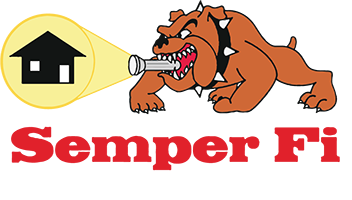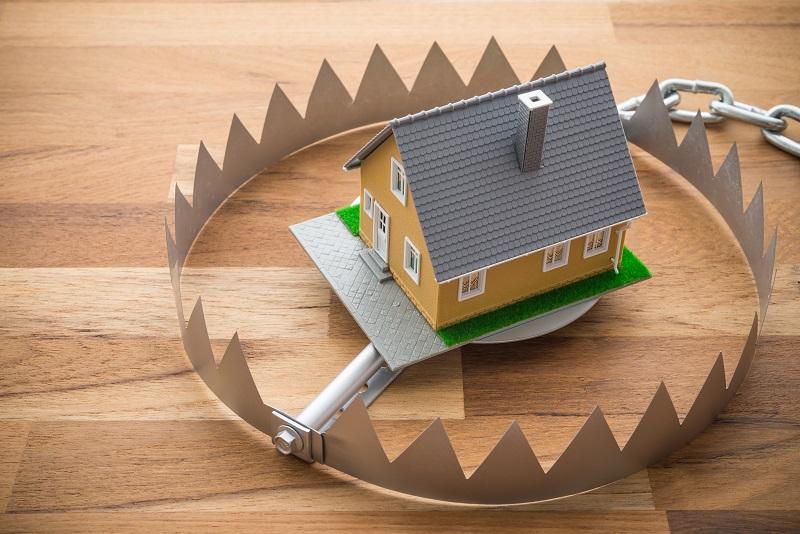When you are buying a house, there are many things that can go wrong. You want to be armed with as much information as possible before making the decision to buy. This article will help you identify 10 red flags that may cause problems when buying a home and what steps you should take if this happens.
While none of these would necessarily mean you should not purchase a chosen property, having more than one red flag should give you pause to consider further to make sure you understand the potentially long-term implications of some of these issues:
Watch for houses that are in need of major repairs
When you are buying a house, it’s important to be aware of the potential for repairs. Some houses may require extensive repairs before you can move in, and this can be costly. If you’re not prepared for this, it can be a major strain on your finances.
In order to avoid this, be sure to ask the seller for a detailed list of all the repairs that have been done in the past. This will help you get an idea of what kind of repairs may need to be done in the future. You should also have a home inspection done before you buy the house so that you can get an accurate estimate of the cost of repairs.
Avoid houses with high taxes or utility bills
One of the things you’ll want to watch out for when buying a house is high taxes or utility bills. If the property you’re interested in has high taxes or utility bills, it may be difficult to afford.
To avoid this, be sure to ask the seller for copies of past tax bills and utility bills. This will give you an idea of how much you can expect to pay each month. You should also budget for unexpected repairs, which can be costly.
Beware of hidden fees and costs associated with the purchase
When you’re buying a house, it’s important to be aware of all the potential costs involved in the purchase. This includes hidden fees and costs that may not be immediately apparent.
One of the biggest fees is closing costs. It’s not a hidden fee since most buyers understand that they will be paying closing costs – it’s just that the aren’t included int he listing price. These are costs that are paid when you close on the purchase of a house. They can include things like attorney fees, title search fees, and appraisal fees.
Another hidden cost is property taxes. These are taxes that are assessed on the property you’re buying. They can vary from state to state, and they can be quite high.
Your real estate agent can help you with a pretty detailed list of all the fees and costs associated with the purchase of the house. This will help you plan for the potential costs involved.
Make sure the house is in a good neighborhood
When you’re buying a house, it’s important to make sure that the neighborhood is good. This means that the neighborhood is safe and there are plenty of amenities nearby.
To check if the neighborhood is good, you can do a few things. First, you can check the crime rate in the area. You can also check for schools, grocery stores, and other amenities nearby. You can also ask your friends and family for their opinion on the neighborhood.
If you’re not sure if the neighborhood is good, be sure to ask the seller for a copy of the police report or a letter from the homeowner’s association. This will give you an idea of how safe the neighborhood is.
Check to see if the property is in a flood zone
When you’re buying a house, it’s important to check to see if the property is in a flood zone. This is because if the property is in a flood zone, it may be difficult to get insurance.
To check to see if the property is in a flood zone, you can use the FEMA flood map. This map will show you the areas that are at risk of flooding. You can also ask the seller for a copy of the flood insurance policy. This will give you an idea of how much it will cost to insure the property.
If you’re not sure if the property is in a flood zone, be sure to ask the seller for a copy of the plat map or survey. This will show you where the property is located.
Assess the condition of the roof, windows, and doors
When you’re buying a house, it’s important to assess the condition of the roof, windows, and doors. This is because if they’re in poor condition, it will be costly to repair them.
To assess the condition of the roof, windows, and doors, you can do a few things. First, you can check for signs of damage. You can also check to see if they’re in good condition. Lastly, you can ask the seller for a copy of the inspection report. This will give you an idea of how much it will cost to repair them.
Look for water damage and signs of mold
When you’re buying a house, it’s important to look for water damage and signs of mold. This is because if they’re present, it will be costly to repair them.
To look for water damage and signs of mold, you can do a few things. First, you can check for signs of water damage. You can also check to see if they’re in good condition. Lastly, you can ask the seller for a copy of the inspection report. This will give you an idea of how much it will cost to repair them.
Beware of fake real estate listings on sites such as Craiglist
When you’re looking for a new home, be sure to watch out for fake real estate listings on sites such as Craigslist. These listings may not be legitimate, and they may not be accurate.
To avoid getting scammed, be sure to only work with legitimate real estate agents. You can also do your research on the property to ensure that it’s actually for sale. Lastly, be sure to ask the seller for proof of ownership. This will help you verify that the property is actually for sale.
Be careful when signing documents
When you’re buying a house, it’s important to be careful when signing documents. This is because you may not understand everything that’s included in the documents.
To make sure that you understand everything that’s included in the documents, be sure to ask the seller for a copy of the document summary. This will give you an idea of what’s included in the documents. You can also ask the seller for a copy of the contract. This will help you understand the terms of the agreement.
Your licensed real estate agent can help you understand all of the documents related to your home purchase.
Have a home inspection done before buying to uncover any potential problems
When you’re buying a house, it’s important to have a home inspection done before you buy. This is because a home inspection can uncover any potential problems with the property.
To have a home inspection done, you can hire a professional inspector. The inspector will check the property for any signs of damage. They will also check to see if the property is in compliance with local building codes.
When buying a house, it is important to be aware of the red flags that may indicate problems down the road. By being informed and taking precautions, you can avoid costly mistakes and headaches in the future. Keep this list handy when touring potential homes and make sure to have a home inspection done before signing any papers.
For commercial property inspections in the Dallas/Fort Worth area, including a thorough and informative home inspection report, learn more at
or request a quote for a commercial inspection at
682-351-2267



